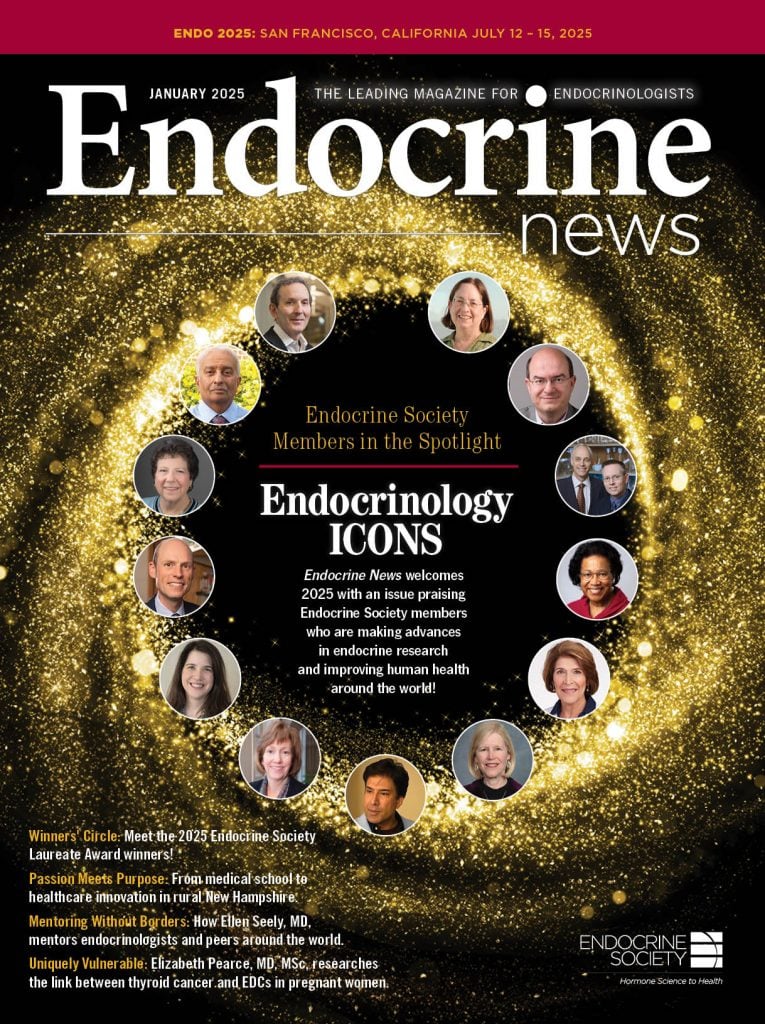
For more than 80 years, the Endocrine Society has recognized the achievements of endocrinologists worldwide. The Laureate Awards recognize endocrinologists for seminal research, meritorious service, leadership and mentorship, innovation, international contributions, education, translation of science to practice, and lifetime achievement.
Established in 1944, the Society’s Laureate Awards recognize the highest achievements in the endocrinology field, including groundbreaking research and innovations in clinical care.
The distinguished recipients on the following pages join a prestigious list of past award recipients, all of whom have advanced scientific breakthroughs, medical practice, and human health around the world. Award categories honor the achievements of endocrinologists at all stages of their careers, recognizing those at the pinnacle of the field as well as young endocrinologists who are making a mark.
The dedication, commitment, and achievements of current and past award recipients have earned them a place in Endocrine Society history as well as the history of the practice and science of endocrinology.
This year, we’ve asked 2025 Laureates how the Endocrine Society has helped shape their careers as well as what advice they have for those aspiring, early-career endocrinologists.
The Endocrine Society will present the awards to the winners at ENDO 2025, taking place in San Francisco July 12 – 1, 2025.
Fred Conrad Koch Lifetime Achievement Award
Daniel Drucker, MD
Daniel Drucker, MD, FRCPC, professor of medicine at the Lunenfeld-Tanenbaum Research Institute, Mount Sinai Hospital, Toronto, has made seminal contributions to understanding fundamental biology of incretin hormones that have led directly to three new classes of drugs for the treatment of diabetes and metabolic disorders.
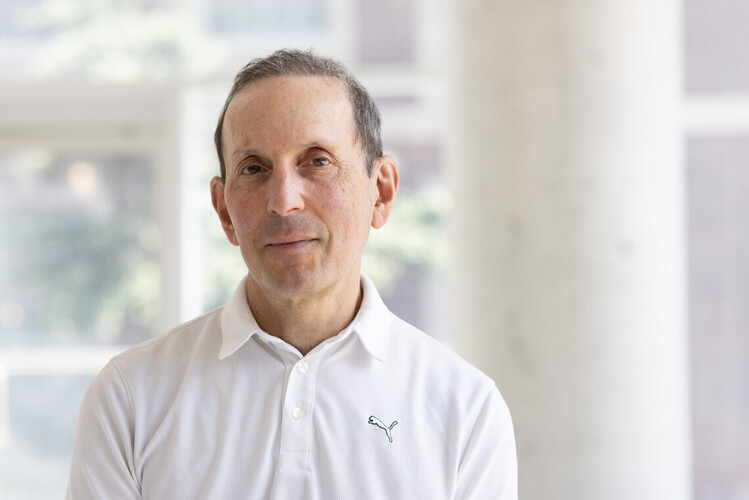
His discovery of the actions of gut hormones such as GLP-1 and GLP-2, and characterization of the enzyme DPP4, have enabled the development of innovative classes of medications that have improved the health of people living with type 2 diabetes, obesity, and intestinal failure. Drucker discovered that GLP-1 directly stimulates insulin secretion, β-cell cAMP accumulation and insulin gene expression and identified new aspects of GLP-1 action in multiple tissues, supporting the development of GLP-1 based therapies for type 2 diabetes and obesity. Drucker’s studies showed these agents control glucose with less hypoglycemia and promote weight loss, while reducing rates of cardiovascular disease.
Using basic science approaches, he demonstrated that the DPP4 enzyme was essential for GLP-1 degradation, insulin secretion, and glucose homeostasis, enabling development of DPP4 inhibitors for treatment of type 2 diabetes. Drucker discovered the actions of GLP-2 as a regulator of nutrient absorption, intestinal growth and mucosal defense against enteric pathogens. He identified the GLP-2 analogue teduglutide, now approved as the only long-term therapy for clinical use in the treatment of adults and children with short bowel syndrome.
Drucker’s discoveries encompass molecular biology, physiology, drug discovery, and clinical investigation, reproducible science that has delineated novel mechanisms of gut hormone action with immense clinical impact. Drucker has served the Endocrine Society in various roles on numerous committees, including as a member of Council, and more recently as editor-in-chief of Endocrine Reviews.
His sustained international scientific leadership in endocrinology represents a wonderful example of bench to bedside endocrine science providing multiple transformational novel medicines that greatly improve the quality of life for people with metabolic and intestinal disorders. – Mitchell Lazar, MD, PhD, Willard and Rhoda Ware Professor in Diabetes and Metabolic Diseases, Perelman School of Medicine; founding director, Institute for Diabetes, Obesity, and Metabolism, University of Pennsylvania, Philadelphia
How has the Endocrine Society supported your professional development/career journey?
The Endocrine Society has served as a professional home for me, whether it be attending meetings, contributing to committees, or serving on editorial boards, it represents a wonderful opportunity to meet colleagues, learn, and advance one’s science.
As a Laureate Award recipient, do you have any advice for those just beginning their careers?
I am a firm believer in the tortoise and the hare concept; while flashy amazing stories are exciting, over the long run, reproducible solid data, often published in Society journals, that incrementally and continuously builds a field is a winning strategy for a productive and respectable career.
Outstanding Mentor Award
Ellen Seely, MD
Ellen W. Seely, MD, professor of medicine, Brigham and Women’s Hospital (BWH), Harvard Medical School (HMS), is an accomplished investigator, with seminal contributions to gestational diabetes, preeclampsia, and their impact on future cardiometabolic health.
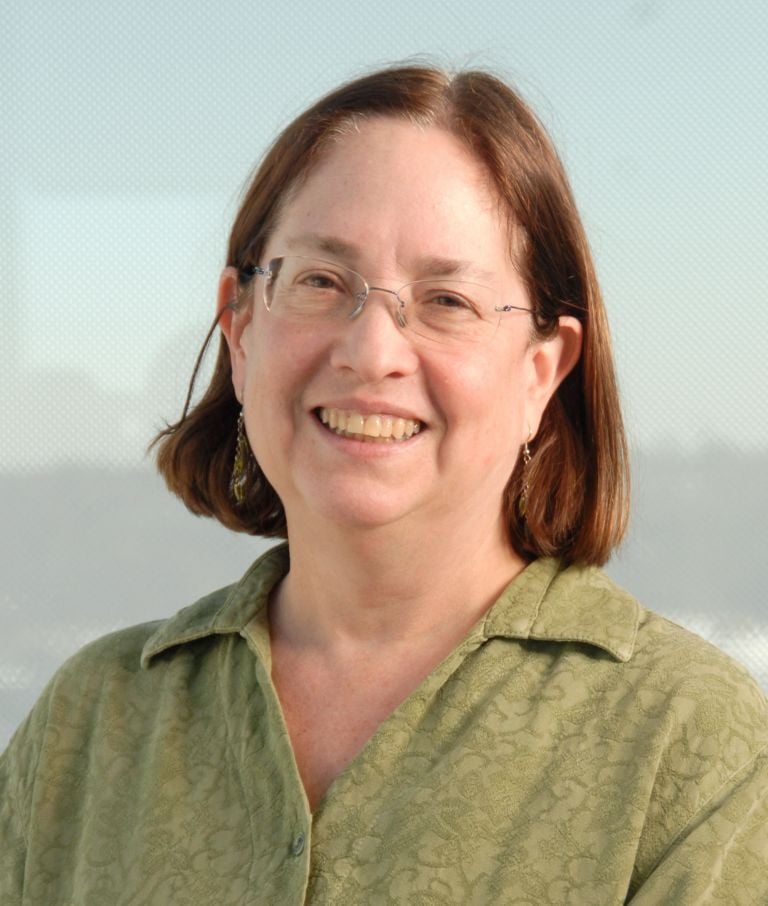
Seely selflessly dedicates a substantial part of her academic career to nurture the intellectual and professional growth of peers and juniors alike and her approach to mentoring is one “without borders.” Her multifaceted mentoring initiatives transcend individuals, departments, institutions, and geographies, having reached Europe and the Middle East. Besides being internationally recognized for her studies of hypertensive disorders of pregnancy, Seely has supported faculty development and well-being, as well as medical student teaching, and training in grant writing and clinical investigation. She has also served on FDA advisory committees, been an NIH study section member, served on various student thesis review committees, and has been a member of various journal editorial board member and served as an ad hoc reviewer.
She has been rewarded for her commitment with multiple awards, including the A. Clifford Barger Excellence in Mentoring Award at Harvard Medical School, the Distinguished Member of the Society of Teaching Scholars at the Brigham and Women’s Hospital, the William Silen Lifetime Achievement in Mentoring Award, and the Mentoring Award from Women in Endocrinology.
She has served on a host of Endocrine Society committees and most recently serves as president-elect of Women in Endocrinology. What stands out in her mentorship behavior is her commitment to collecting mentees and helping them, providing constructive feedback and sponsorship for their next roles. – Ann E. Taylor, MD, vice president, Global Clinical Development, Medimmune, Inc., Gaithersburg, Md.
How has the Endocrine Society supported your professional development/career journey?
The Endocrine Society has provided me with an important academic home and community of support. I have had leadership opportunities on committees of the Society and opportunities to develop and participate in educational programs. Important to me has been my membership in Women in Endocrinology that, although not directly part of the Endocrine Society, I was introduced to through the Society. There I have found a peer-mentoring group, an avenue to provide support to other women in endocrinology as well as further leadership opportunities (e.g., serving as current president of Women in Endocrinology).
As a Laureate Award recipient, do you have any advice for those just beginning their careers?
My general advice is to join the Endocrine Society for its potential importance in career development. I would also like to encourage endocrinologists to join Women in Endocrinology — any gender invited to join. In terms of my perspective as the recipient of the Society’s Mentor Award, I would like to encourage individuals at all stages to create mentoring networks to support their different career goals. Mentoring networks are particularly important for those early in their careers.
Gerald D. Aurbach Award for Outstanding Translational Research
V. Krishna Chatterjee, MD
V. Krishna K. Chatterjee, CBE, FRS, FRCP, FMedSci, professor of endocrinology at the University of Cambridge and Director of the Cambridge Clinical Research Centre of the National Institute for Health Research (NIHR), is distinguished for his contribution to the molecular basis of endocrine disorders and its application to clinical medicine.
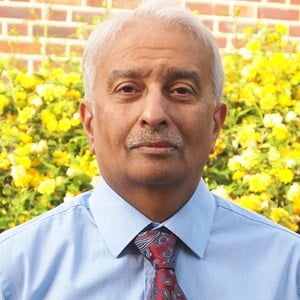
He has delineated a multisystem disorder with a thyroid signature due to deficiency of selenocysteine-containing proteins, encompassing phenotypes due to oxidative damage (life-threatening aortic aneurysm, photosensitivity, hearing loss) or lack of specific selenoproteins (azoospermia, muscular dystrophy) in tissues. He was first to identify a defect in a nuclear genome encoded, transfer RNA causing selenoprotein deficiency.
Chatterjee has made important discoveries in clinical understanding of resistance to thyroid hormone (RTH), delineating cardiac hyperthyroidism, dyslipidemia and hepatic steatosis and increased cardiovascular morbidity and mortality in RTHbeta. He has shown that RTHalpha is a form of congenital hypothyroidism associated with near-normal thyroid function tests, which is underdiagnosed.
His observation that thyroxine therapy can prevent many adverse consequences of RTHalpha, highlights a need for increased, future ascertainment of this condition. He has translated his research into biochemical and genetic tests and biomarkers that constitute an internationally recognized diagnostic service for disorders of thyroid hormone action, and which inform therapeutic approaches (e.g., selective thyromimetics) in these disorders. His research, which spans the basic-clinical interface, is an exemplar of translational investigative science. – J. Larry Jameson, MD, PhD, Interim President, University of Pennsylvania, Philadelphia, Penn.
How has the Endocrine Society supported your professional development/career journey?
Since joining the Endocrine Society when I was a research fellow in the Thyroid Unit at Massachusetts General Hospital, it has supported my scientific and clinical development. Specifically, its activities in basic science (e.g., nuclear receptors) and clinical endocrinology (e.g., disorders of thyroid hormone action) have been the basis for gaining and sharing information with the endocrine community worldwide, without which our research would not have been possible.
As a Laureate Award recipient, do you have any advice for those just beginning their careers?
Throughout my career I have sought to keep up with knowledge of advance in both basic science and clinical practice in my field of interest. Although this takes much time and effort, I think it has been the basis of our most fulfilling contributions to knowledge and understanding.
Outstanding Scholarly Physician Award
Christos Mantzoros, MD, PhD, DSc
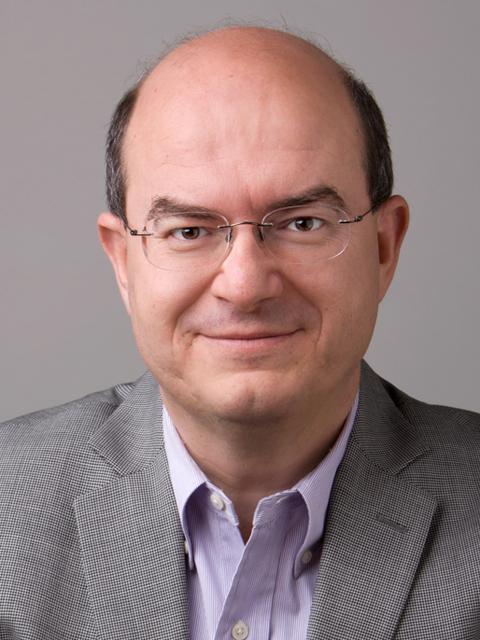
Christos Mantzoros, MD, DSc, PhD, h.c. Mult. is a professor of medicine at Harvard Medical School with a longstanding successful and highly recognized research program of clinical and translational endocrinology at Beth Israel Deaconess Medical Center (BIDMC), where he is the founding director of the Department of Human Nutrition. He also serves as the chief of Endocrinology, Diabetes, and Metabolism at the Veterans Affairs Boston Healthcare System and holds the position of adjunct professor at the Boston University School of Medicine.
Mantzoros has published close to 1,000 peer-reviewed scientific articles. A practicing internist, endocrinologist and dedicated educator, he is a pioneer and worldwide expert in obesity and metabolism. During his career, he has treated tens of thousands of patients and mentored over 200 trainees and collaborators, ranging from students to physicians and fellows, to full professors and company executives all over the world.
He is also a stellar educator who has created and leads novel clinical training and education programs. It should be noted that this body of work has provided considerable new information illuminating our understanding of the underlying pathophysiological mechanisms related to obesity, energy balance, and metabolism. His past and ongoing work has defined the role of the adipocyte-secreted hormone leptin in humans, and over the last years, the Mantzoros lab research has expanded to understand the physiology and the role of gastrointestinal hormones, i.e., the proglucagon-derived peptides in obesity and metabolic health as well as the role of myokines and mitokines in obesity, and obesity-related disorders such as diabetes, NASH, CVD, and obesity-related malignancies. – Konstantinos Stefanakis, MD, research fellow, Beth Israel Deaconess Medical Center, Boston, Mass.
How has the Endocrine Society supported your professional development/career journey?
The Endocrine Society has been my scientific home since I was in training. It has been an invaluable venue for learning, exchanging and developing ideas, presenting and discussing science, and getting recognized by peers.
As a Laureate Award recipient, do you have any advice for those just beginning their careers?
Dedicate your life to serving those in need, listen to your patients empathetically, be curious, find the right mentors, never stop studying, and ask important questions. Work persistently hard and smart until you find the right answers that you can apply at the bedside to help ease the suffering of your fellow human beings so that they can live better, healthier, and longer lives.
Roy O. Greep Award for Outstanding Research
Barbara Kahn, MD
Barbara Kahn, MD, vice chair for research strategy at the Beth Israel Deaconess Medical Center is internationally recognized for her path-breaking discoveries that have helped to shape the fields of diabetes and endocrinology research for over three decades.
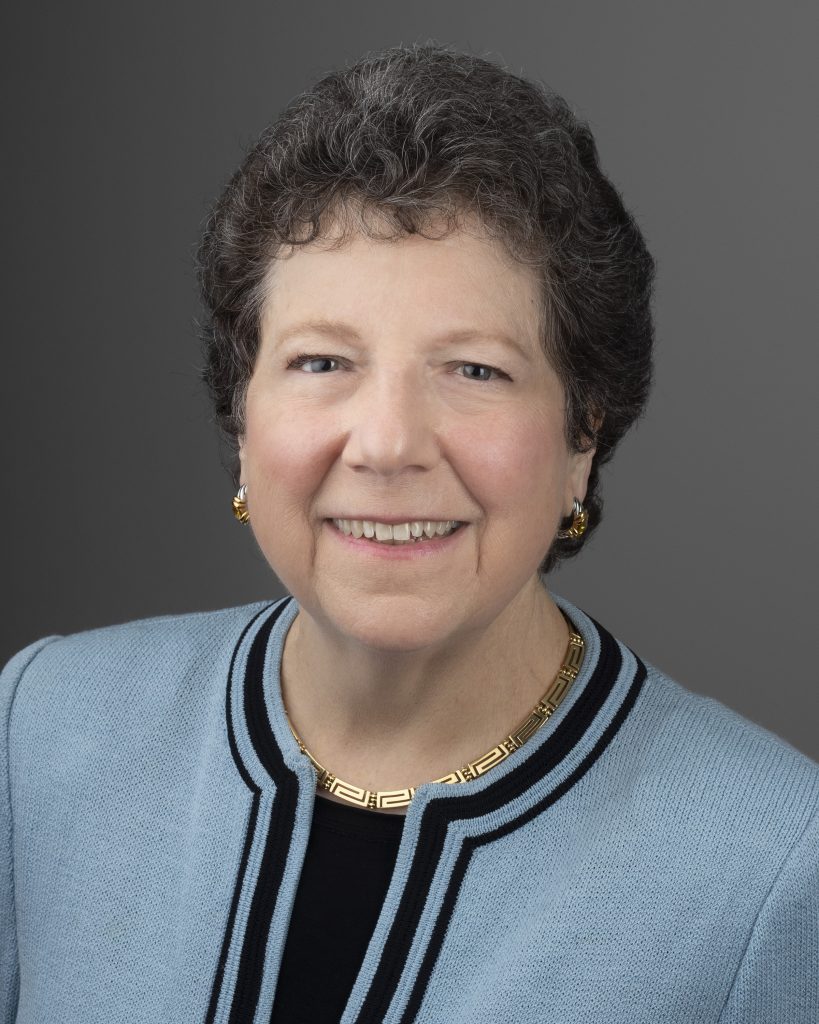
Her pioneering discoveries have illuminated the molecular mechanisms underlying obesity and type 2 diabetes, including the regulation of insulin sensitivity through inter-tissue communication and adipocyte biology. She has elucidated cellular mechanisms by which adipose tissue regulates systemic insulin action and type 2 diabetes pathogenesis. Her seminal studies demonstrated that expression of the major insulin-regulated glucose transporter, GLUT4, is down-regulated in adipocytes in insulin-resistant states. This led to her paradigm-shifting discovery that reducing adipocyte-GLUT4 levels impairs insulin action in muscle and liver and that adipocytes are master regulators of whole-body insulin-sensitivity.
Mechanistically, she discovered two classes of metabolically important adipose-secreted molecules: Her lab showed retinol-binding-protein-4 is elevated in insulin-resistant states and drives insulin-resistance and type 2 diabetes through proinflammatory effects. Her lab also discovered, with collaborator Alan Saghatelian, a novel class of evolutionarily conserved signaling lipids (FAHFAs) with anti-diabetic and anti-inflammatory actions which are tightly linked with insulin-sensitivity in humans and rodents. Kahn also discovered that AMP-activated-protein kinase is a critical cellular “fuel gauge” which acts in peripheral tissues and brain to regulate energy balance and adiposity. Kahn has trained numerous highly successful leaders in endocrinology and metabolism around the world. Her innovative, translationally important research has reshaped the metabolism field over three decades. – Shingo Kajimura, PhD, Howard Hughes Medical Institute, Beth Israel Deaconess Medical Center, Boston, Mass.
Edwin B. Astwood Award for Outstanding Research in Basic Science
David Mangelsdorf, PhD and Steven Kliewer, PhD
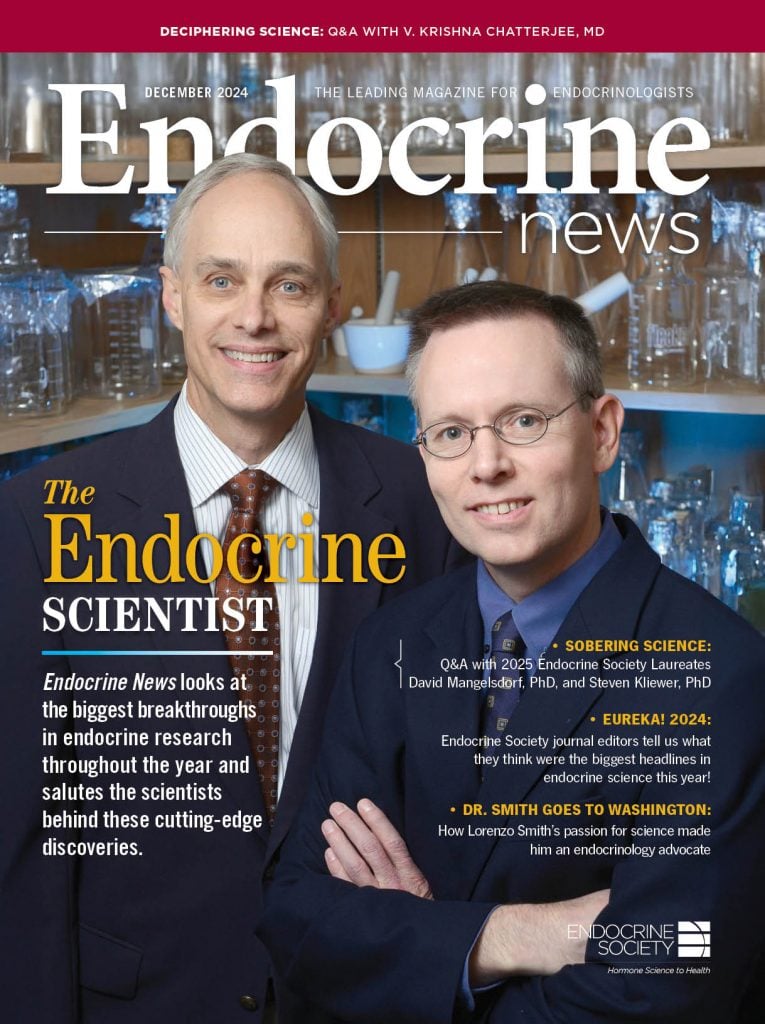
David Mangelsdorf, PhD, distinguished chair in pharmacology and in molecular neuropharmacology and Steven Kliewer, PhD, distinguished chair in developmental biology at UT Southwestern Medical Center have made groundbreaking discoveries in endocrine signaling through nuclear receptor research. Their discoveries include the elucidation of the key signaling pathways governing cholesterol, lipid, and bile acid homeostasis, the identification of a conserved mechanism controlling the way in which animals react to nutritional stress, and the characterization of the mechanism underlying parasitic nematode infections. Their work has led to the creation of life-saving drugs with FDA approval and impacted human health on a global scale. Mangelsdorf and Kliewer separately pursued investigations into nuclear receptors and joined forces in 2002 when Kliewer was recruited to UT Southwestern.
Kliewer’s prior work at GlaxoSmithKline identified thiazolidinediones as ligands for the orphan nuclear receptor PPARγ and elucidated the nuclear xenobiotic receptor PXR’s role in drug interactions. Mangelsdorf’s work at UT Southwestern identified liver X receptors (LXRs), revealing a sought-after mechanism responsible for the body’s detection and removal of cholesterol. Mangelsdorf and Kliewer concurrently discovered the bile acid receptor, FXR and demonstrated the role of bile acids as hormones regulating their own metabolism, a groundbreaking revelation that culminated in the development of an FDA-approved medication for primary biliary cholangitis. Overall, their contributions have expanded our understanding of metabolic pathways, physiological regulators, and potential therapeutic interventions, demonstrating immense potential for human health, agricultural applications, and beyond.
Donald McDonnell, PhD, Glaxo-Wellcome Professor of Molecular Cancer Biology, Department of Pharmacology and Cancer Biology, Professor of Medicine, co-director, Women’s Cancer Program, Duke Cancer Institute, Duke University School of Medicine, Durham, N.C.
How has the Endocrine Society supported your professional development/career journey?
Mangelsdorf: The Endocrine Society has been our home since we were students, making it an invaluable venue for supporting and highlighting our work. It has been quite fulfilling and appropriate that our careers have never wandered far from our roots in nuclear endocrine receptor biology.
As a Laureate Award recipient, do you have any advice for those just beginning their careers?
Mangelsdorf: Don’t be risk adverse. To answer a big question, you have to ask a big question.
Richard E. Weitzman Outstanding Early Investigator Award
Erik Nelson, BSc, PhD
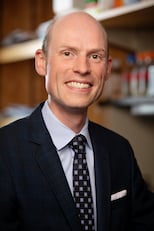
Erik Nelson, BSc, PhD, is associate professor of molecular and integrative physiology at the University of Illinois at Urbana-Champaign. His work has defined biochemical links between dyslipidemia/hypercholesterolemia and the pathobiology of osteoporosis and breast cancer. He demonstrated that 27-hydroxycholesterol (27HC), an oxysterol that is produced in a stoichiometric manner from cholesterol, functions as an endogenous selective estrogen receptor modulator (SERM) exhibiting cell selective ER-agonist and antagonist activities. Using pharmacologic and genetic approaches in animal models he demonstrated that 27HC opposes ER action in bone resulting in osteoporosis/osteopenia. In follow-up studies, he and his collaborators developed an assay to evaluate 27HC in humans which was used in studies that concluded that elevated cholesterol/27HC could account for a significant number of osteoporotic fractures in postmenopausal women.
In other studies, he and his collaborators demonstrated that statins effectively lowered circulating 27HC suggesting that the use of cholesterol-lowering medications may improve bone health in patients with hypercholesterolemia. He developed mouse models to study the impact of hypercholesterolemia on breast cancer and determined that 27HC, mimicked endogenous estrogens to drive the growth of ER-positive breast tumors. Important follow-up clinical studies, leveraging these insights, are planned to evaluate the impact of statins on tumor responses to aromatase inhibitors and other endocrine therapies used to treat breast cancer.
Recently, he has determined that 27HC may have activities on tumor biology beyond its ability to regulate cancer cell intrinsic ER-signaling as in animal models of ER-negative breast cancer he demonstrated that this oxysterol reprogrammed innate immune cell function in tumors in a manner which favored tumor growth. He has defined the signaling pathways responsible for these activities and has developed novel therapeutic approaches that are currently been explored as breast cancer treatments/preventatives. Nelson’s work, establishing cholesterol-derived oxysterols as agents which influence the pathology of disease is groundbreaking and clinically impactful. His work highlights the importance of studying biological processes at their most fundamental level to appreciate the best ways to intervene for therapeutic benefit. For this important work, he is a deserving awardee of the 2025 Weitzman Award. – Donald McDonnell, PhD, Glaxo-Wellcome Professor of Molecular Cancer Biology, Department of Pharmacology and Cancer Biology, Professor of Medicine, co-director, Women’s Cancer Program, Duke Cancer Institute, Duke University School of Medicine, Durham, N.C.
How has the Endocrine Society supported your professional development/career journey?
I was fortunate to participate in the first “trainee day” that the Endocrine Society hosted, which was also the first Endocrine Society meeting I attended. That experience really opened my mind to the breadth of our field, new emerging technologies, and how the Society fostered the continuum from basic science to translational science to clinical practice. Since then, the Endocrine Society has been my home. We have been able to showcase our research, form new collaborations, and learn of the clinical shortfalls that basic scientists are charged with solving. It has come full circle now, as the Society fosters the development of my trainees through opportunities to present their work and scholarships to travel to the annual meeting.
As a Laureate Award recipient, do you have any advice for those just beginning their careers?
1. Persistence. If you have an idea you are passionate about, it might be that the world is not ready to receive it. Be persistent and slowly convince people of why it is important.
2. Don’t be afraid of change. Adopt new strategies, technologies, and collaborators.
3. Choose your team and be a good teammate. From mentors to trainees, surround yourself with excellence — and a team that you enjoy being around! Give more than you receive.
Outstanding Leadership in Endocrinology Award
Ilene Fennoy, MD, MPH
Ilene Fennoy, MD, MPH, professor of pediatrics at Columbia University’s Valegos College of Physicians & Surgeons, is a pioneer, innovator, and leader in the field of pediatric obesity and in the realm of equity, diversity, and inclusion (EDI).
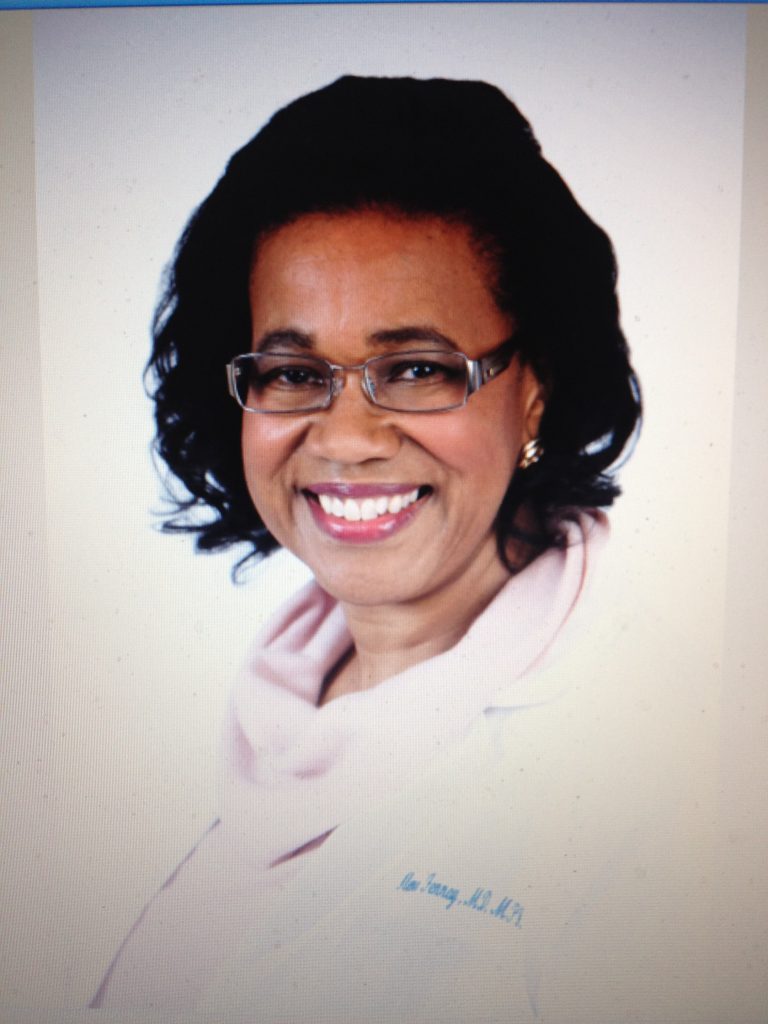
Fennoy directs key programs at Columbia University focused on obesity and related cardiovascular morbidity, with a particular emphasis on care for underserved populations. She was appointed to the Endocrine Society’s Pediatric Obesity Guidelines Committee and co-authored the resulting Clinical Practice Guideline. Her leadership in this field is also reflected in her having been appointed to the Pediatric Endocrine Society (PES)’s Obesity Task Force and through her selection to co-author a review, entitled: “The History of Obesity Research” in commemoration of the 50-year anniversary of the founding of the PES.
Perhaps Fennoy’s most compelling leadership in endocrinology is through her work in the realm of EDI. After having served on the Endocrine Society’s Minority Affairs Committee, she established and co-chairs the PES’s EDI Task Force. She created the Mission Statement for this task force, played a key role in selecting topics and speakers for EDI symposia, and led efforts to create an award through PES for fellows or junior faculty with a focus on developing new, high-impact approaches to EDI. In addition, Fennoy initiated collaboration with the Endocrine Society’s CoDI to support dissemination of the Endocrine Society’s FLARE and ExCEL programs to PES members. She is a true champion of the rights of all children, trainees, and her colleagues. – Stephen M. Rosenthal, MD, professor of pediatrics and medical director of the Child and Adolescent Gender Center (CAGC) at the University of California, San Francisco, Calif.
Sidney H. Ingbar Award for Distinguished Service
Lori Raetzman, PhD
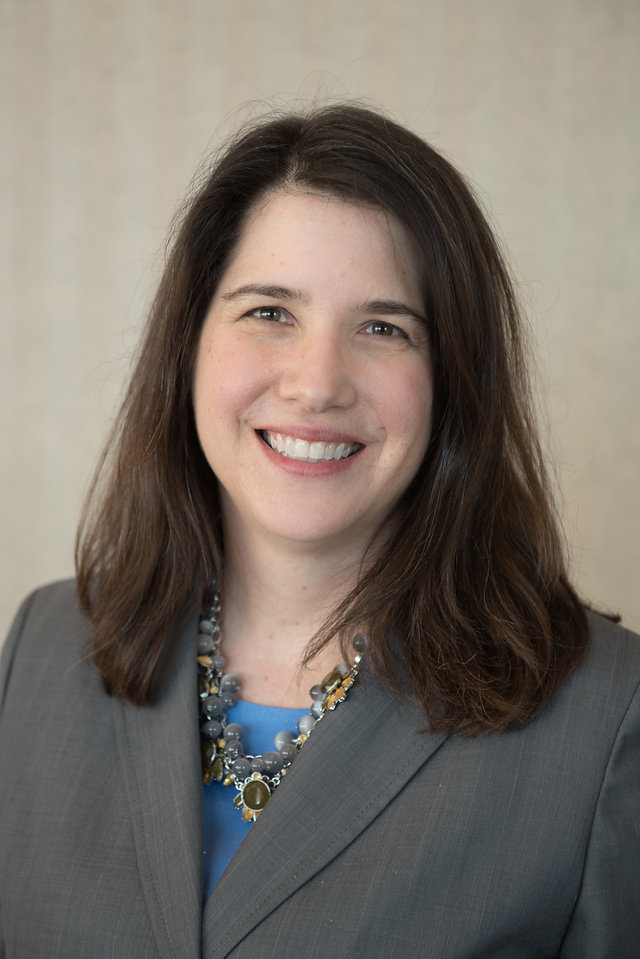
Lori T. Raetzman, PhD, is a professor of molecular and integrative physiology and associate director for the MCB PhD Programs at the University of Illinois Urbana-Champaign, School of Molecular and Cellular Biology. Raetzman’s research journey, spanning over two decades, has focused on neuroendocrinology. Her significant contributions include seminal work on pituitary transcription factors and the elucidation of Notch signaling in pituitary and hypothalamic development. Her research, reflected in 67 publications, has received substantial funding from esteemed sources like the National Institutes of Health. As an educator, Raetzman’s impact extends across various educational levels. Her prowess in teaching, evident in diverse subjects from genetics to research ethics, has garnered consistent acclaim and several teaching awards. She has mentored numerous students across undergraduate, graduate, and postgraduate levels, guiding them toward prestigious fellowships and impactful careers in academia, private sector, government, and healthcare.
Raetzman has made stellar achievements in research and education, and she has exhibited exceptional leadership and commitment to multiple scientific communities. However, her exceptional service to the Endocrine Society stands out prominently. Since joining in 2001, she has served on numerous committees, showcasing remarkable leadership skills as committee chair. Her initiatives, including incorporating social media for enhanced trainee engagement and organizing workshops on critical professional development topics, have amplified the Society’s reach and inclusivity. Raetzman has also been instrumental in fostering diversity and leadership through programs like FLARE, supporting underrepresented minorities in basic and clinical research. Beyond the Endocrine Society, her commitment extends to other scientific communities, facilitating the exchange of best practices and broadening outreach for trainees and career development. – Sally Camper, PhD, professor, Department of Human Genetics and Internal Medicine, University of Michigan, Ann Arbor, Mich.
How has the Endocrine Society supported your professional development/career journey?
The Endocrine Society is my scientific home, where I go for cutting-edge work in my field. However, the biggest impact the Endocrine Society has had is on my professional development. I’ve worked with and learned from amazing member leaders to envision the future of endocrinology and create programming for career development. I’ve learned how important advocacy is for both clinicians and researchers in our field and how to be an effective communicator for our needs. I’ve also seen how important thoughtfully thinking about governance is for an organization. All of these experiences have helped train me to be a leader in my home institution. I’m playing critical roles in graduate education and training programs. I’ve learned skills from my Endocrine Society service, certainly, but also have developed a network of colleagues that act as a fantastic support system and sounding board for any crazy idea I might have.
As a Laureate Award recipient, do you have any advice for those just beginning their careers?
Your career is an amazing journey to an unknown place. Lean into opportunities and experiences that challenge you. Find mentors and sponsors that can give you advice, champion your career, and nominate you for awards. Belonging to a scientific society, like the Endocrine Society, can be a springboard to find mentors. The career development programs, both at the meeting and throughout the year via SIGs, will keep you connected to career trends and training as you embark on the next steps. It is never too early to start thinking about “what next,” no matter what career stage you are at.
Outstanding Educator Award
Alice Levine, MD
Alice C. Levine, MD, is director of the interdisciplinary Adrenal and Pituitary Centers, where she serves as mentor and educator to trainees and faculty in internal medicine, nuclear medicine, radiology, pathology, endocrine, and neurosurgery. She is the program director for the Endocrinology, Metabolism, Diabetes Fellowship, which has become the largest and one of the most competitive programs in the nation consistently attracting top-ranked applicants.
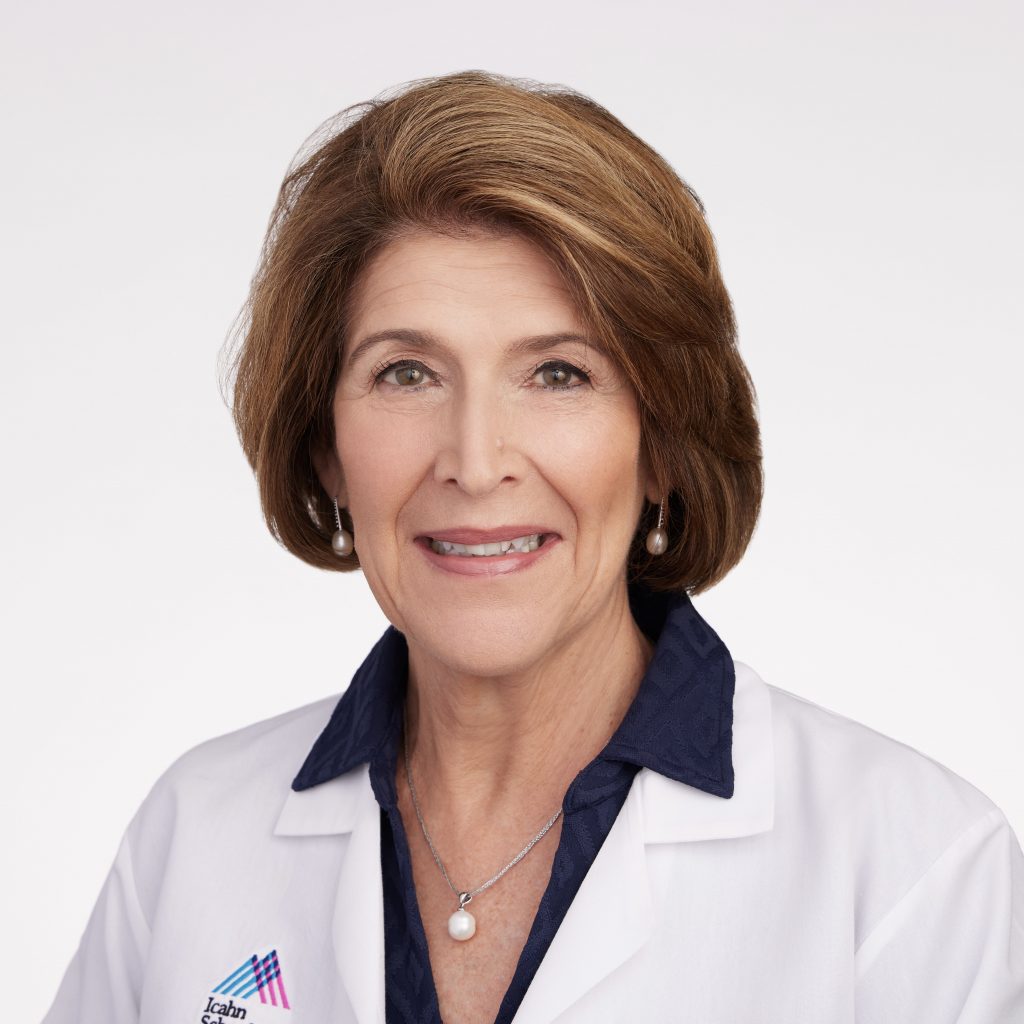
Levine was the course director for the Icahn School of Medicine at Mount Sinai (ISMMS) endocrine pathophysiology course for 25 years, inspiring generations of medical students to pursue careers in the field. She received ISMMS’s Teaching Award in 2011 and the Jacobi Medallion in 2017, the highest award conferred by its Alumni Association. Levine has also mentored legions of high school, college, PhD, and MD students in translational research, many of whom have gone on to successful academic careers and credit her as their inspiration.
She is a highly sought-after speaker at national and international meetings for her research in the areas of prostate cancer and adrenal diseases and has been repeatedly invited to give symposium presentations at the Endocrine Society annual meetings, most recently at ENDO 2024 on adrenal cortical cancer. Her publications are highly cited, and she has edited three textbooks that serve to educate endocrinologists in the fields of hormonal neoplasia and adrenal diseases. She is the quintessential educator who conveys her enthusiasm and excitement for the field of endocrinology to trainees, colleagues, and patients. – Andrea Dunaif, MD, system chief, Division of Endocrinology, Diabetes, and Bone Disease, Mount Sinai Health System; Lillian and Henry M. Stratton Professor of Molecular Medicine, Icahn School of Medicine, Mount Sinai, New York, N.Y.
How has the Endocrine Society supported your professional development/career journey?
I have been a career-long member of the Endocrine Society, attending my first annual meeting during my fellowship in 1985 in Baltimore, Md. I remember the excitement of that first meeting and all the others up to and including Boston in 2024. It is my professional home. The meetings, the online resources, the Meet the Professor sessions and books, have been an integral part of my development as a scientist, clinician, and teacher. Regarding teaching, I steal from the best, including my many colleagues in the Society. I have forged lifelong friendships and networks around the globe — individuals I can turn to for help and advice in real time, especially regarding challenging cases.
As a Laureate Award recipient, do you have any advice for those just beginning their careers?
All of us who choose endocrinology as a field have a general fascination with the puzzle of hormones. However, it is a broad field, and, as careers develop, be it on a clinician or scientist path, it is important to choose an area of focus to become a master. This is essential not only for career building but also for career satisfaction going forward, as the more you know, the more you enjoy it. I feel as excited about my career now as I did back in 1985, perhaps more so. I attribute that lifelong passion to delving deep into certain areas, in my case hormonal neoplasia, prostate, adrenal, and pituitary. In terms of what area to focus in, I tell trainees to shop in their own closet; reflect on which cases you did extra reading about or chose to do a presentation on. There is no accounting for taste or where your eyes go but you should definitely listen to what your actions have been telling you and go deep. You will be a happy endocrinologist for many years to come.
Vigersky Outstanding Clinical Practitioner Award
Whitney Woodmansee, MD
Whitney Woodmansee, MD, is professor of medicine in the University of Florida’s Division of Endocrinology, Diabetes and Metabolism, and is also the director for the Neuroendocrine/Pituitary Program and Thyroid Cancer Program. Woodmansee is a specialist endocrinologist who is highly valued for her expertise in neuroendocrine diseases. However, she is also very knowledgeable in general medicine and general endocrinology. She is the kind of clinician that ensures she does everything the patient needs and ensures the systems are in place to most efficiently and completely deliver care. The latter is exemplified by her expertise in developing a pituitary testing center at Brigham and Women’s Hospital and then ensuring such practices were in place at other centers where she worked.
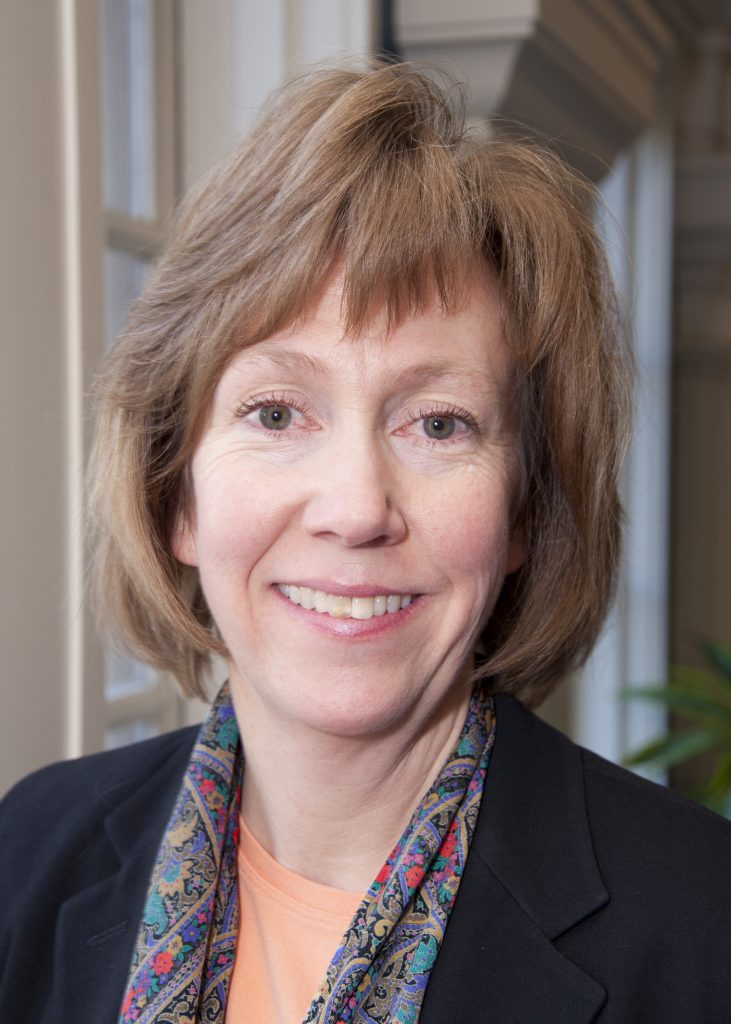
Woodmansee’s high value is evident by the fact that many patients have even followed her as her practice has moved from different centers. She is also thoroughly committed to patient education, a critical skill for an outstanding clinician. Keeping up with and interpreting the latest clinical and basic science research, and then translating it for patients to understand, requires a thorough understanding of basic investigation and clinical trials, a critical mind, and a thorough understanding of the questions patients are asking and what is important for patient care.
Woodmansee is never too busy to do the right thing for her patients, and her patients always come first on top of her personal, family, and professional obligations. Even though she may have been exhausted by the extra clinical demands on a practicing clinician during the COVID-19 pandemic, she did not let her patients see her stress but helped them feel heard and cared for. – Ann E. Taylor, MD, vice president, Global Clinical Development, Medimmune, Inc., Gaithersburg, Md.
How has the Endocrine Society supported your professional development/career journey?
The Endocrine Society has played a critical role in my professional and personal development ever since I entered the endocrinology field as a fellow. The Endocrine Society has supported me in so many ways by offering a wide range of experiences including attending and presenting at the Annual Meeting, serving on Society committees, and reading the many educational materials and publications. There are so many ways to become involved. I have had the great pleasure of attending every meeting since 1997, apart from 2020 when the meeting was cancelled due to the pandemic. Every year I look forward to ENDO as a wonderful time to connect with friends and colleagues and to share everything from research discussions and clinical debates to social events. As a member of Women in Endocrinology, I have also benefited immensely from participation in this organization and from the long-term support the Endocrine Society has given to this group. Most of all, I am grateful for all the lifelong connections I have made with so many wonderful people through all our Endocrine Society interactions.
As a Laureate Award recipient, do you have any advice for those just beginning their careers?
Always strive for excellence in whatever career path you choose, and remember, the patient will always tell you what’s wrong; you just have to listen and investigate carefully. I thank all my patients for allowing me to share in their medical journey and for the inspiration they provided. Finally, please enjoy the many wonders of your career and work hard but be sure to instill balance in your life.
Outstanding Clinical Investigator Award
JoAnn Manson, MD, PhD
JoAnn Manson, MD, Phd, who is the chief of the Division of Preventive Medicine at Harvard Medical School, a physician at Brigham and Women’s Hospital, and a professor at Harvard T.H. Chan School of Public Health in Boston Mass., is one of the most influential clinical investigators in endocrinology and women’s health. She has made pivotal and trailblazing contributions to elucidating the benefits and risks of estrogen therapy in early versus later menopause, and the role of vitamin D supplementation in preventing major chronic diseases.
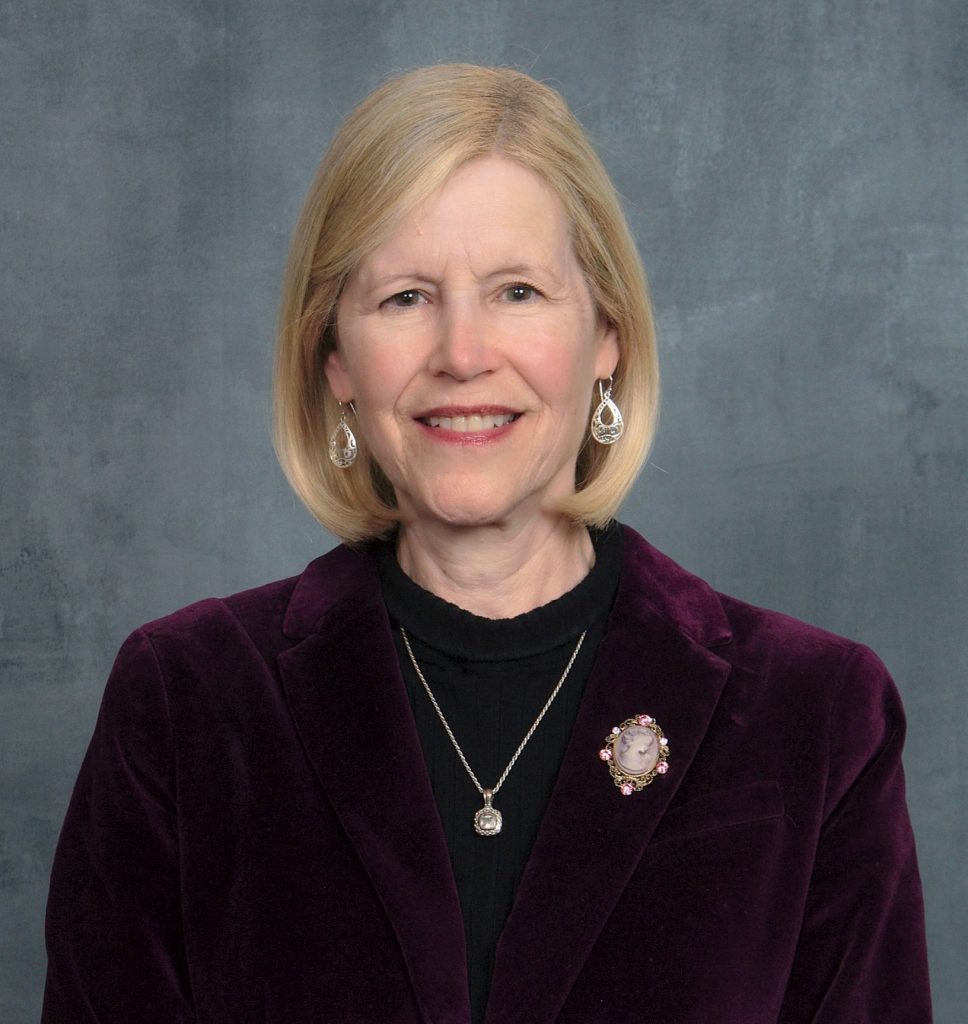
She provided the first randomized trial evidence that the benefit-to-risk profile of hormone therapy for clinical events is more favorable in early than later menopause. She also initiated and led the largest randomized trial of vitamin D and chronic disease prevention in the world, influencing the field of precision prevention. She has led impactful and highly cited publications on the benefit/risk profile of menopausal hormone therapy and launched the investigator-initiated VITamin D and OmegA-3 TriaL (VITAL), the largest randomized clinical trial of vitamin D supplementation in the world and the only primary-prevention randomized trial of marine omega-3 fatty acids and cardiovascular disease.
Manson’s clinical research has had extraordinary impact on clinical medicine and women’s health. She has more than 1,200 original report publications in medical literature. She has received innumerable awards for her work, including the American Heart Association’s (AHA) Distinguished Scientist Award, the AHA’s Research Achievement Award, the Woman in Science Award, election to the Institute of Medicine of the National Academies (National Academy of Medicine), membership in the Association of American Physicians, and many others. – Andrea Dunaif, MD, system chief, Division of Endocrinology, Diabetes, and Bone Disease, Mount Sinai Health System; Lillian and Henry M. Stratton Professor of Molecular Medicine, Icahn School of Medicine, Mount Sinai, New York, N.Y.
How has the Endocrine Society supported your professional development/career journey?
The first scientific conference I ever attended was the Endocrine Society’s annual meeting in San Antonio in 1983, and I was hooked! I loved attending the scientific sessions, looking at posters and talking to the investigators, having an opportunity to present my work, meeting researchers in my field, and as much networking as I could ever have hoped for. The annual meetings, whenever I was able to attend, were invaluable to me as an early-career investigator and have remained so throughout my career. I’ve also learned so much from reading the Endocrine Society journals most relevant to my field, having the opportunity to publish several papers in these journals, receiving regular communications from the Endocrine Society, and having mentors and mentees made possible by the Society. The Endocrine Society has been a key supporter and catalyst of my professional development and career journey since my earliest days as an endocrine fellow.
As a Laureate Award recipient, do you have any advice for those just beginning their careers?
My main advice to those beginning their careers: 1. Be willing to take risks with learning unfamiliar skills– don’t be afraid to fail; 2. Seek out a mentorship network (including peer mentorship) both inside and outside your program; and 3. Don’t let setbacks derail you or deter you from your chosen path. Disappointments and setbacks are inevitable and provide the most powerful lessons possible for personal improvement and course corrections. Facing and overcoming obstacles will make you stronger and better equipped to meet your goals.
International Excellence in Endocrinology Award
Syed Abbas Raza, MD
Syed Abbas Raza, MD, currently serves as a consultant endocrinologist and physician at Shaukat Khanum Hospital and Research Center, in Lahore, Pakistan. Raza is an outstanding clinician, educator, and advocate for global endocrinology. His passion is to educate the public and healthcare providers about the prevention and treatment of diabetes and obesity. He led an effort by the Pakistan Endocrine Society in collaboration with the International Society of Endocrinology (ISE) to produce MED Buzz, short educational videos sent to primary providers across the region delivered via What’s App and YouTube. He leads “Run For Healthy Life” to raise awareness of obesity and to promote a healthier lifestyle for youth in the South Asian region.

In his position at the Shaukat Khanum Hospital and Research Center and National Defense Hospital in Pakistan, Raza has published extensively and lectured regionally and internationally on these initiatives, many of which have been for healthcare providers in underserved areas of the region. He has served as president of the Pakistan Endocrine Society and is currently the president of the ISE. In this role, Raza is expanding efforts to promote preventative health measures to integrate global efforts to educate both the public and front-line providers, and to harness the regional efforts of South Asia to improve the health of patients with diabetes and endocrine disorders. He rose through the ranks of the South Asian Federation of Endocrine Societies (SAFES), which includes endocrine societies of Afghanistan, Bangladesh, India, Maldives, Nepal, Pakistan, and Sri Lanka serving as president. The Pakistan Endocrine Society honored Raza with Lifetime Achievement award. – Margaret E. Wierman, MD, professor in medicine, physiology, and biophysics and OBGYN, University of Colorado, Aurora, Colo.

